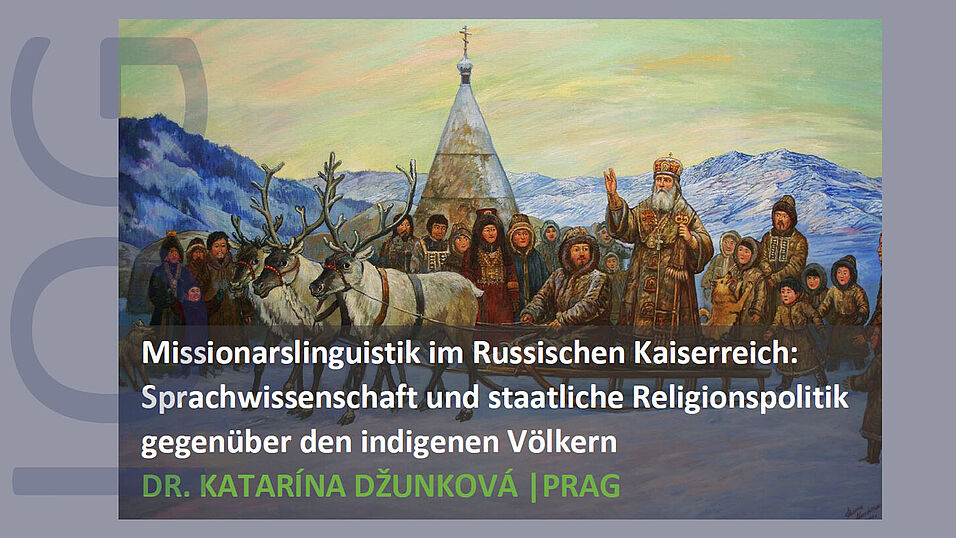Dienstag 23. April 2024, 17:00 Uhr – Hörsaal des IOG
Die Veranstaltung findet im Rahmen des Seminars zur Abschlussarbeit bei Wolfgang Mueller statt.
Seit Ende des 18. Jahrhunderts änderte sich die Einstellung der russischen Staatsmacht zur indigenen Bevölkerung auch in kirchenpolitischer Hinsicht. Russisch-orthodoxe Missionare arbeiteten intensiv mit der indigenen Bevölkerung zusammen: sie verfassten Grammatiken, Wörterbücher, Alphabete und übersetzten die Heilige Schrift und sogar die Liturgie in die indigenen Sprachen. Aber auch hier kam es zu Versuchen der Russifizierung.
KATARÍNA DŽUNKOVÁ hat International Area Studies, Orientalistik und Vergleichende Sprachwissenschaft an der Karls-Universität in Prag studiert und in historischer Linguistik an der Staatlichen Universität St. Petersburg und der Russischen Akademie der Wissenschaften promoviert.

